When I first started playing Civilization 5, one of the first things I looked for on the internet was a list of all civilizations and their leaders. I found a few, but none of them gave a convenient list of each civ, their leader, the unique trait and the special buildings and units they provide. I still wanted to have such a list, so I decided to make it myself instead. Hopefully it will be useful to some other people – please do feel free to drop a comment if you have something to add or feel a correction needs to be made somewhere. After all, Firaxis is still heavily patching Civ 5, and some of the stats might change.
[icon_check] This guide has been updated with the Gods & Kings and Brave New World Expansions.
Civilization: America
Special Ability: Manifest Destiny: All land units have +1 sight and a 50% discount when purchasing tiles in cities.
Unique Unit: B17: Replaces the Bomber unit. Starts with Siege I and Evasion – which reduces damage from air interception by 50%. This normally takes a few upgrades, so this is a great unit for the early stages of the late game.
Unique Unit: Minuteman: Ignore terrain movement costs. 15% combat bonus in Rough Terrain. Gains points toward Golden Ages from victories. This is a decent unit, but it’s obsolete quite quickly.
Comments: America’s +1 sight for land units should not be underestimated when it comes to exploration or preventing Barbarians from spawning near your territory. Position units strategically to get the most out of this. The 50% discounts when purchasing tiles is honestly not that great, it will save you a bit of gold here and there but it won’t make a significant difference. The B17 is fantastic when laying siege to cities, but doesn’t come into play until very late in the game. The Minuteman can be useful for further exploration. America can work for any play style, but never really shines compared to other choices.
Civilization: Arabia
Special Ability: Ships of the Desert: Caravans gain +50% extended range. Trade routes spread religion at double effectiveness. Oil (strategic resource) provides double quantity.
Unique Unit: Camel Archer: Replaces the Knight and provides a ranged unit rather than a melee one. Attacking over 2 hexes is extremely valuable on such a fast unit at the medieval stage of the game – this is a great unit.
Unique Building: Bazaar: The Bazaar replaces the Market and provides an additional copy of each luxury resource being worked on by the city. Oil and Oasis tiles yield a bonus of +2 gold. This is fantastic for trading, especially if said resource is scarce.
Comments: Arabia has lost it’s +1 gold bonus to trade routes in Brave New World and had it replaced with +50% extended range to caravans and an increase to the spread of their religion. The double oil benefit is far more important than it might seem, but you will not notice it until the late game. Oil is a requirement for many of the stronger units in the late game, and allows you to field large numbers of carriers and bombers. The Bazaar is still a very powerful building – but Arabia has lost a little of it’s economic capability with these changes and is slightly better suited at a religious pursuit now. Don’t be too tempted with the additional range of caravans as trade routes over land are nowhere near as lucrative as those by sea. Arabia is still a decent trading nation purely due to the Bazaar and the prospect of Oil exports later in the game.
Civilization: Assyria
(Available from the Brave New World Expansion)
Special Ability: Treasures of Nineveh: When a city is conquered, steal a Technology from its owner. The former owner must already have discovered the technology, this must occur through military conquest and can only happen once per city.
Unique Unit: Siege Tower: Replaces Catapult. Is a melee siege unit rather than ranged, but does not require set-up. Strength 12, Cover I promotion (ranged defense), +1 to sight, +200% bonus vs Cities and most important of all: any units within 2 hexes gain +50% attack bonus vs Cities.
Unique Building: Royal Library: Replaces Library. Gains a Great Work of Writing slot. Once filled, this gives +10XP to any units trained in the city. This stacks with barracks and other bonuses.
Comments: This one is incredibly straight forward. Assyria is made for conquest and has some of the best tools in-game to make said conquest happen fairly early in the game. Rush to Siege Tower technology and if you can get your Siege Towers in range of enemy cities, you’re pretty much unstoppable. These units are devastating to cities and if supported with the right units are close to unstoppable as they can turn mediocre siege units into more than adequate ones. A city surrounded by units which are supported by one or two Siege Towers will only survive under the most fortunate circumstances. Combined with the ability to outright steal technologies, your main focus should be on your military forces and expanding through conquest.
Civilization: Austria
(Available from the Gods & Kings Expansion)
Special Ability: Diplomatic Marriage: Pay 500 gold to Puppet or Annex an allied City-State.
Unique Unit: Hussar: Replaces Cavalry. +1 Movement (vs. Cavalry 4), +1 Sight, Enhanced Flanking. A faster cavalry unit designed to overwhelm your opponent with. Great unit both for scouting and rapid assault.
Unique Building: Coffee House: Replaces Windmill. Does not require open terrain. +5% production to everything (vs. +10% for only buildings), +25% great people generation. Needless to say, this is a great building.
Comments: Diplomatic Marriage makes Austria and incredibly unique and dangerous opponent. This ability allows Austria to absorb a City-State completely, taking over all buildings, units, unique resources – everything. As long as you can sustain this with your happiness and gold income, you can make huge leaps forward in terms of economic and production power. The hussar is a dangerous unit, flanking comes very easy and combined with some promotions and a Great General, Austria can become close to unstoppable.
Civilization: Aztec
Special Ability: Sacrificial Captives: Gives culture for each enemy unit killed.
Unique Unit: Jaguar: Since the Jaguar replaces the Warrior, you receive this benefit immediately. Jaguars receive a combat bonus in Forests and Jungle, moves quicker through those and heals 25 damage when it defeats an enemy unit in battle. Obviously this unit is quickly obsolete, but it is a fantastic unit to start with.
Unique Building: Floating Gardens: Replaces the Water Mill and gives +2 additional food to each lake tile the city is working(!) in addition to the normal flat +2 food the Water Mill already provides. Also provides +15% Food. This is a fantastic building, but extremely situational.
Comments: Sacrificial Captives is a rather unusual ability, but the culture you acquire from killing enemy units can really add up in the long run. The floating gardens are great since they were buffed, and the Jaguar is a fairly powerful starting unit. It’s obviously best suited for a militaristic approach, as you absolutely must take advantage of your Sacrificial Captives. If you are unable to win through domination, dig in and push for a Cultural Victory – anyone fighting you is only helping your cause.
Civilization: Babylon
(Available from the Digital Deluxe Edition, or as DLC)
Special Ability: Ingenuity: Free Great Scientist when Writing has been researched. Increases the rate at which Great Scientists are born by 50%.
Unique Unit: Bowman: Replaces the archer and gets +2 ranged Combat Strength and Defensive Strength compared to the standard archer.
Unique Building: Walls of Babylon: Replaces the Wall. Gives 6 defensive bonus vs. the normal 5 and costs less. Provides +100 City HP vs. +50. Together with Bowman, this gives Babylon a great early defense.
Comments: Babylon is obviously meant to be a scientific civilization in Civ 5, and it provides you the early defense bonuses to handle it as well. It is highly recommended to use that initial Great Scientist to build an Academy somewhere, as the early techs are not expensive enough to waste him on rushing one. Construct anything that enhances the production of great people, as the Great Scientists are of extreme importance to your scientific dominance. It is worth noting that the free Great Scientist does not increase the cost of producing your next one.
Civilization: Brazil
(Available from the Brave New World Expansion)
Special Ability: Carnival: During Golden Ages, Tourism output is doubled and Great Artists, Musicians, and Writers are earned 50% faster.
Unique Unit: Pracinha: Replaces Infantry. Any kills made by the Pracinha provide points toward Golden Ages.
Unique Tile Improvement: Brazilwood Camp: Can only be built on Jungle tiles and provides +2 Gold and +2 Culture. This stacks with the bonus provided by universities as it does not clear the jungle tile.
Comments: This civilization is completely tailored toward the revamped cultural victory in Brave New World. As you need tourism to dominate other civilizations and work towards this victory condition, triggering golden ages is absolutely vital. Luckily, Brazil has a great tool-set and unlike many others can even use strategic wars to accelerate their progress towards a non-domination victory type. Find a weak neighbor whom you’ll already easily dominate culturally, and then literally farm them to trigger golden ages.
Civilization: Byzantium
(Available from the Gods & Kings Expansion)
Special Ability: Patriarchate of Constantinople: Choose a bonus Belief when founding your Religion. This bonus may come from any category, provided it’s still available.
Unique Unit: Dromon: Replaces the Trireme. Receives a 50% bonus vs. naval units and has a range of 2. This unit is superior to Triremes in every sense.
Unique Unit: Cataphract: Replaces the Horseman. Strength 15 vs 12. Moves slower (3 vs 4). Unlike normal Horsemen, this unit can fortify. I’m not sold on this unit. It’s really best used in a defensive manner and this needs to be kept in mind when planning your long-term strategy.
Comments: Byzantium is clearly meant to be used is you wish to pursue founding a religion. However, you don’t actually get a bonus to faith which helps you achieve this, and the huge risk with this civilization is that you might not get to found a religion at all, thereby completely negating your unique ability. If you do manage to found a religion, use your bonus on a founder or enhancer belief. You normally only get one and you can get an enormous advantage over everyone else if your religion becomes dominant.
Civilization: Carthage
(Available from the Gods & Kings Expansion)
Special Ability: Phoenician Heritage: All coastal Cities automatically gain a free Harbor. After the first Great General is born, units can pass through Mountain Tiles. Units that end the turn on a Mountain Tile lose 50 HP.
Unique Unit: Quinquereme: Replaces the Trireme. Strength 13 vs. 10. A stronger Trireme, nothing more and nothing less.
Unique Unit: African Forest Elephants: Replaces the Horseman. Strength 14 vs 12. Moves slower (3 vs 4). Does not require horses. Very likely to spawn Great Generals. -10% combat penalty to adjacent enemy units (does not stack). Do not underestimate this unit. It might be slow, but the fact you don’t require horses is actually extremely significant.
Comments: Carthage is another rather unique civilization. The ability to pass mountain tiles with land units can give you a huge strategic advantage on some maps. Free harbors is outright amazing, as you don’t pay any upkeep costs on these either. This essentially means that you build up a trade network with no effort entirely free of any cost. You want to focus settling on the coast with Carthage.
Civilization: Celts
(Available from the Gods & Kings Expansion)
Special Ability: Druidic Lore: Cities next to an unimproved Forest Tile produce a bonus +1 Faith. Cities next to three unimproved Forest Tiles produce a bonus +2 Faith.
Unique Unit: Pictish Warrior: Replaces the Spearman. +20% Combat bonus outside Friendly Territory. Killing enemy units provides a one-time Faith bonus equal to half the Strength of the killed unit. No Movement cost to Pillage Improvements. Does not get a bonus against Mounted Units.
Unique Building: Ceilidh Hall: Replaces the Opera House. Adds +3 Happiness to the +4 Culture which the Opera House already provides.
Comments: The Celts are obviously aimed at founding a religion. You can often achieve this without even building a Shrine. Later in the game you probably want to build Lumber Mills on your forests, but I’d recommend trying to keep at least 1 forest unimproved as the bonus faith does add up. The Celts are best used in a manner which enables your faith to support your primary goal. A cultural victory seems the way forward, but you can really go any in direction.
Civilization: China
Special Ability: Art of War: Birth rate of Great Generals increased by 50%. Great Generals grant a +30% combat bonus, instead of +15%.
Unique Unit: Cho-Ko-Nue: Replaces the Crossbowman. Fires twice in one turn, which makes this unit extremely useful and much more powerful than its normal counterpart.
Unique Building: Paper Maker: Replaces the Library. The Paper Maker gives an additional +2 gold when compared to the Library, which translates into a net income of +3 gold per Paper Maker due to the 1 gold maintenance on the Library.
Comments: China is a bit of an odd one to place. You get a bonus to the military side of things, a gold bonus to libraries in the form of the Paper Maker and a unit which fires twice a turn in the mid game. The gold bonus can add up very quickly, increasing your gold income without losing focus of research, and is a fantastic building when you consider that markets and banks increase this bonus even further. China is very well suited for military victories, but can do very well in the Space Race as well.
Civilization: Denmark
(Available as DLC)
Special Ability: Viking Fury: Embarked units have +1 move and only 1 movement cost for moving from sea to land. Melee units are charged no movement cost for pillaging improvements.
Unique Unit: Berserker: Replaces Longswordsman. +1 Move, free Amphibious (no attack penalty when attacking over a river or from the sea).
Unique Unit: Norwegian Ski Infrantry: Replaces Rifleman. +25% in Snow/Tundra/Hills (unless Forest or Jungle is present) and half movement cost.
Comments: Denmark has clearly been designed as a military civilization, with extremely specific bonuses. Best used on island maps to take full advantage of the Amphibious nature and embark bonuses. The ‘free’ pillaging option is pleasant, but doesn’t make as big an impact as the bonuses from Germany and Japan. Not the best faction, but under the right circumstances there are some pleasant advantages. Denmark is best played in a hit & run style method – pillage improvements, raze cities and hit your enemies where it hurts.
Civilization: Egypt
Special Ability: Monument Builders: +20% Production bonus towards Wonders.
Unique Unit: War Chariot: Replaces the Chariot Archer. They have 1 additional move point compared to the Chariot Archer, and don’t require the horses strategic resource.
Unique Building: Burial Tomb: Replaces the Temple. Burial Tombs give +2 happiness when compared to the Temple. Maintenance cost 0 vs the 2 for a Temple. This can be of great help if you are trying to build a fairly large empire. This building comes with the downside that your enemy will get twice as much gold when they conquer your city.
Comments: The +2 happiness bonus for all your cities should certainly not be sniffed at, as it provides an easy mechanism to deal with your expansion early on. With the Piety social policy track you can further utilize the happiness by converting excess happiness into culture. The War Chariot provides a great early attack unit, which can be spammed to your desire. You will definitely want to make use of the +20% wonder production to get some early wonders, and a good production city is of great benefit to Egypt. As a result, Egypt is particularly well suited to cultural victories, but can do very well on the others too.
Civilization: England
Special Ability: Sun Never Sets: +2 movement for all naval units. Receives 1 bonus Spy at the Renaissance.
Unique Unit: Longbowman: Replaces the Crossbowman. The Longbowman has a range of three hexes, making it a fearsome ranged unit in the early stages of the game.
Unique Naval Unit: Ship of the Line: Replaces the Frigate. Comparing the Ship of the Line to the Frigate, bearing in mind that by default the unit benefits from the Sun Never Sets ability, it really provides a fantastic vessel. The Ship of the Line has 7 moves vs. the 5 a frigate enjoys, +1 sight and does more ranged damage than the frigate and is slightly cheaper to build!
Comments: The Ship of the Line combined with the +2 movement bonus, truly dominates the seas for the entire mid period of the game. If the map contains a lot of water, England is going to be very powerful if played properly. The Longbowman provides an excellent unit for long-range support to your attacking forces, and England is a great choice for a military victory through conquest. The Great Lighthouse provides an opportunity to really add to your advantage, and any enemy civilization which manages to build this before you will close the gap somewhat. The Exploration social policy track is almost mandatory with England. With the arrival of Gods & Kings – England now enjoys the huge benefit of having 1 more spy than any other civilization.
Civilization: Ethiopia
(Available from the Gods & Kings AND the Brave New World Expansions)
Special Ability: Spirit of Adwa: Military units gain a +20% Combat Bonus when fighting rival Civs that own more Cities than you.
Unique Building: Stele: Replaces the Monument. Provides +2 Faith on top of the +2 Culture a monument already provides. Awesome for an early leap in faith.
Unique Unit: Mehal Sefari: Replaces the Rifleman. +15% combat bonus in Rough Terrain (Drill 1), Variable combat bonus when fighting near the Capital. This combat bonus is at its most powerful, +30%, when the unit is inside the Capital and becomes weaker the further away the unit is.
Comments: Ethiopia is perfect for a defensive strategy, focusing on a Cultural victory. It’s clearly designed to be kept small, ensuring you benefit from Spirit of Adwa. The Stele is an utterly amazing building, providing double the benefit of a Shrine at no cost or penalty whatsoever. You will be able to found a pantheon so quickly that really nobody will be able to stop you from founding your religion first – short of faith boosts from ruins. The Piety track is mandatory for Ethiopia as it boosts both Faith and Culture extremely well.
Civilization: France
Special Ability: City of Light:Great work theming bonuses are doubled in the French capital.
Unique Unit: Musketeer: Replaces the Musketman. Musketeers have a combat strength of 28 (vs 24), and they are the most powerful units of the renaissance era.
Unique Tile Improvement: Château: May be built adjacent to luxury improvements, but not other Châteaus. Provides +1 Gold and +2 Culture to the tile when worked, which increases to +3 Gold and +3 Culture once Flight has been discovered.
Comments: France is a fantastic choice for Cultural victories. France has undergone a major change in Brave New World, with a change to its Special Ability focusing it more on tourism directly, rather than just culture. They also lost their foreign legion units and gained the Château. Whilst this plays into the theme of the Civilization, France has lost a lot of the former early strength and is now much better suited for a pure cultural victory, fully focused on creating as much culture and tourism as possible. The Musketeer remains an impressive unit, but you should fully focus on creating a capital filled with wonders and pure cultural output.
Civilization: Germany
Special Ability: Furor Teutonicus: Land Unit Maintenance costs reduced by 25%. When defeating a barbarian inside a camp, there is a 67% chance of converting them to your side.
Unique Unit: Panzer: Replaces the Tank. The Panzer is completely superior to the standard Tank, providing +10 combat strength and +1 movement. On top of this, they can move after attacking – showing the Blitzkrieg tactics the Germans pioneered in World War II.
Unique Building: Hanse: Replaces the Bank. In addition to the normal benefits a bank provides, adds +5% production per Trade Route with a unique City-State.
Comments: It goes without saying that Germany is aimed at Military victories. Their bonus encourages you to hunt barbarians and if luck is on your side you will expand your army and gain some experience early on. In the early late game, the German Panzer is one of the most terrifying offensive units, and your ability to move after attacking allows for true Blitzkrieg tactics. Your absolute priority in this stage of the game is to secure enough oil to keep your war machine going. Remember the Arabian oil bonus? These guys are particularly well suited as long-term allies! Since Gods & Kings, Germany now also gets a 25% reduction in Unit Maintenance costs, enabling you to field a much larger army. This makes Germany even more amazing than before. With the Brave New World expansion, Germany’s Landsknecht has been replaced by the Hanse. This can end up providing a significant production bonus, which should not be underestimated and only supports the German war machine.
Civilization: Greece
Special Ability: Hellenic League: City-state Influence degrades at half and recovers at twice the normal rate.
Unique Unit: Companion Cavalry: Replaces the Horseman. The Companion Cavalry improves upon the Horseman by 2 additional attack power (14 in total) and +1 movement. Essentially, this is the classic era Blitzkrieg unit, as Horseman already have the ability to move after attacking. It also comes with the ability that increases the chance to spawn Great Generals.
Unique Unit: Hoplite: Replaces the Spearman and give an additional +2 combat strength (total 13). Bear in mind that these units get 50% combat strength bonus vs. cavalry, so that this unit ends up with 19 combat strength vs. the standard Horseman’s 16.
Comments: Greece is incredibly well suited for a Diplomacy victory, and absolutely screams for use of the Patronage social policy track. Both of the unique units are for the early stages of the game, allowing your to rapidly expand your influence and defend your city state allies – which are well worth defending provided that all your bonuses are focused on them. You can also exploit the abilities of the Greeks to pursue any other victory, just be selective in which City States you choose to align yourselves with and be able to back up any protective statements you make.
Civilization: Huns
(Available from the Gods & Kings Expansion)
Special Ability: Scourge of God: Starts with Animal Husbandry already discovered. Pastures yield a bonus +1 Production. Conquered Cities are Razed twice as fast.
Unique Unit: Horse Archer: Replaces the Chariot Archer. Does not require horses. +15% combat bonus VS units in open terrain (Accuracy I). Rough Terrain Movement penalty removed. +1 melee strength. A great unit and with the removal of the horse requirement can be build in large quantities.
Unique Unit: Battering Ram: Replaces the Spearman. This is an unique unit which can only attack Cities with a +300% bonus. It upgrades to a Trebuchet instead of to the Pikeman.
Comments: This will not come as a surprise but the Atilla and his Huns are best suited towards Military pursuits. There’s only one strategy and that is to conquer and puppet as many enemies as possible. Nobody will trust you, but the early game goes fast and hard for Atilla. Extra production from Pastures makes raising armies even easier, and the Battering Ram makes conquering cities early in the game a breeze. Use this to your advantage but don’t completely eliminate your opponents yet: you actually want them to settle more cities which you can then conquer. Why bother settling yourself if you can let other people do all the hard work for you?
Civilization: Inca
(Available as DLC)
Special Ability: The Great Andean Road: No movement penalty in hills. No maintenance costs for improvements on hill tiles, half maintenance costs elsewhere. Note that the Wagon Trains policy in the Commerce track stacks with this, making roads and railroads completely free anywhere.
Unique Unit: Slinger: Replaces the Archer. -1 Melee combat strength, ability to withdraw to an adjacent tile if attacked at melee range by non-fast units. (E.g. Cavalry, etc.)
Unique Building: Terrace Farm: Tile improvement. +1 Food to Hill Tiles, +1 Food if adjacent to mountain. Requires Construction.
Comments: The Inca have some truly unique bonuses, which should not be underestimated. Yes, the Iroquois receive the same movement bonus for forest tiles, but hills cannot be destroyed – where forests become less common as the game progresses. Having more powerful farms can be a huge bonus to early growth, especially since the Inca start bias ensures mountains and hills will be present around their capital. The slinger is brilliant in the early game, as it’s much less vulnerable than the standard Archer unit. Please note that whilst the ability to withdraw on this unit is excellent, it makes them poor escorts for civilian units as the slinger could withdraw and leave the opponent to follow and immediately capture the civilian. So don’t use them to protect your settlers or workers!
Civilization: India
Special Ability: Population Growth: Double the Unhappiness from the number of Cities, but Halve the Unhappiness from Population size.
Unique Unit: War Elephant: Replaces the Chariot Archer. Does not require horses. Compared to the Chariot Archer, the War Elephant loses 1 point of movement, but has +3 melee combat strength and gains +1 ranged power as well. Rough Terrain movement penalty does not apply for War Elephant’s either. These are truly fantastic in the early stages of the game.
Unique Building: Mughal Fort: Replaces the Castle. The Mughal Fort is a great improvement compared to the Castle. It costs 10 less production to build and gives +2 culture to top it all off. Once flight has been researched, it starts providing +2 Tourism.
Comments: India is a fantastic choice for players who like going for big cities and is great at having about 3 cities with an enormous population. In my last game with Arabia I ended up with 27 cities, most of which were size 10, and some of them well above 20. Still, I had a higher population count in my game with India, with only 3 cities. India is best suited for any victory which doesn’t involve conquest. Note that Brave New World changed the +3 Gold on the Mughal Fort with +2 Tourism, making India exceedingly useful at Cultural victories. Large cities with huge tourism output are extremely powerful when going for this victory type, just don’t forget those great works and archaeological digs!
Civilization: Indonesia
(Available from the Brave New World Expansion)
Special Ability: Spice Islanders: The first 3 Cities settled on other continents than where Indonesia started each provide 2 unique Luxury Resources and can never be Razed.
Unique Unit: Kris Swordsman: Replaces the Swordsman. Gains random upgrades after combat, such as 1 additional attack and move per turn, or fully healing. The upgrade can also be negative in the form of cursed blades, but generally speaking some of the bonuses are incredibly powerful and well worth carefully preserving well into the end of the game.
Unique Building: Candi: Replaces the Garden. For each religion with at least 1 follower in the city, gain +2 Faith per turn.
Comments: Indonesia is a bit of a mixed bag. Whilst the special ability is really useful for trading with other civilizations it does have rather situational use after the first set. The Kris Swordsman units can turn out incredibly powerful, but Indonesia has nothing else backing this military power up. We then have a Candi which goes into the religious side of things. Indonesia is decent at several things, but master of none. Still, it’s a fun civilization to play and I’d recommend playing them with a focus on religion and military. If you wish to play as a trading nation, Venice, Portugal and The Netherlands would all be better choices.
Civilization: Iroquois
Special Ability: The Great Warpath: Units can move through forest and jungle tiles in friendly territory as if they were a road. These tiles can be used to establish trade routes upon discovering The Wheel. Caravans can move through any forest or jungle tile as if they were roads.
Unique Unit: Mohawk Warrior: Replaces the Swordsman. Does not require Iron. The Mohawk Warrior gains a 33% combat bonus when fighting in forest and jungle. If these are available in large numbers, you can use this to your advantage but it is rather situational.
Unique Building: Longhouse: Replaces the Workshop. The Workshop normally gives a 10% bonus to production, but the Longhouse changes this completely. Instead it gives a +1 bonus to production for each forest tile the city uses. Unfortunately it’s extremely situational, and you absolutely must have forest tiles to gain some benefit.
Comments: This is one of the civilizations which has a nice idea behind it but is far too situational to be of use long-term. If you want to hit the Iroquois where it hurts, cut down their forests and they lose any and all advantages they enjoy. Nevertheless, the ability to create trade routes without road improvements reduces the upkeep costs and makes for a nice bonus. Mohawk Warriors are very strong but only if they are in Forest or Jungle Tiles – and the Longhouse is fantastic but only if you have a lot of forest available. As a result, the Iroquois need to be played in a very specific manner and might not be everyone’s cup of tea. If you do have plenty of forest and jungle tiles available however, this can be a powerful nation which can use these forests as a natural defense mechanism versus invaders.
Civilization: Japan
Special Ability: Bushido: Units always fight at full strength, even when damaged.
Unique Unit: Samurai: Replaces the Longswordsman. Samurai are identical to Longswordsmen except that they gain Shock I and Generals II abilities. This increases their combat potential by 20% in open terrain and increases the likelihood a great general will spawn when defeating an enemy. They are also able to build Fishing Boats when embarked, which is of great benefit to developing your cities.
Unique Air Unit: Zero Fighter: Replaces the Fighter. The Zero gains a combat bonus of 33% vs. other Fighters and as such enables the Japanese to dominate the skies. This is invaluable in the early part of the late game.
Comments: Japan is perfectly suited for a Military victory, and gives an excellent example of why the Aztecs are a bit underwhelming. The ability to fight at full power even when damaged allows the Japanese to dominate almost all fights where there are equal numbers. The Zero is a fantastic unit in the early late game and enables you to clear the enemy skies of enemy air units to make room for your bombers. Japan is incredibly strong early on in the game, but remain a force to be reckoned with throughout the entire game. It’s not until the late game that other Civilizations can fight on mostly equal footing, due to the technology and infrastructure that should be available to them at this point.
Civilization: Korea
(Available as DLC)
Special Ability: Scholars of the Jade Hall: Specialists yield a bonus +2 Science. Great Person Improvements yield a bonus +2 Science. A tech boost is awarded whenever a Science Building or Science Wonder is completed at the Capital. Wonders that trigger this bonus include the Great Library, National College and Oxford University—not the Porcelain Tower. Buildings that trigger this bonus include the Library, University, Observatory, Public School and Research Lab. The Great Library’s free Library does grant a second science boost, assuming a Library isn’t already present in the Capital.
Unique Unit: Hwach’a: Replaces Trebuchet. Bonus vs cities removed. 26 ranged strength vs. 14 for a Trebuchet. This is a siege unit designed for combat against normal units, rather than cities.
Unique Naval Unit: Turtle Ship: Replaces Caravel. Strength 36 vs the 20 for a Caravel. Loses all Caravel benefits, including extra sight, deep ocean access and retreating when attacked in melee. Bear this in mind – as the Caravel is generally the first ocean-faring ship and the Turtle Ship is not suitable as an ocean faring attack ship.
Comments: Korea is one of very few true scientific civilizations, possibly the only one besides Babylon. You gain a fair few tech boosts equal to research agreements, as well as a science increase from specialists and improvements. Korea’s unique units are completely aimed at defending your own cities, and replace units you would otherwise have been able to use for offensive purposes. If you are aiming for a Domination victory, Korea is not the civilization to pick. Rationalism is an absolute must-have for Korea.
Civilization: Maya
(Available from the Gods & Kings Expansion)
Special Ability: Long Count: After researching Theology, a Great Person of your choice appears at your Capital every 394 years. Each Great Person can only be chosen once.
Unique Unit: Atlatl: Replaces the Archer. Unlocks with Agriculture. Slightly cheaper than the Archer.
Unique Building: Pyramid: Replaces the Shrine. +2 Faith instead of the usual +1. +2 Science.
Comments: Having instant access to the equivalent of an Archer is absolutely amazing. As added bonus, you can put off researching Archery for a little bit – though you will still require it quickly for Trade routes. (It’s a per-requisite towards The Wheel). Being able to both generate more Faith as well as generate more science very quickly, gives the Maya a nice early advantage. You will notice that the Maya use their own calendar instead of the normal dates and each 394 years you can choose a free great person. This gives the Maya a huge advantage. The Maya are great at using Faith to boost a specific victory condition, especially science, but culture would work equally well.
Civilization: Mongolia
(Available as free Downloadable Content as of October 25th, 2010)
Special Ability: Mongol Terror: Units fighting City States receive a +30% combat bonus. All mounted units receive +1 movement.
Unique Unit: Keshik: Replaces the Knight. Gains 2 additional moves (total 5!), has 15 combat strength vs. the Knight’s 20, but gains a 16 strength ranged attack. Gains promotions at double rate, and contributes double amount of experience towards earning a Khan. Receives no penalties against cities, but cannot melee attack. An incredible skirmish unit.
Unique Unit: Khan: Replaces the Great General. Gains 3 additional moves (total 5!) and heals all adjacent units.
Comments: I’ve brought in Captain Obvious for the commentary on this one: Mongolia is aimed at military victories, taking out city states after they’ve done all the hard work to build up. The Khan provides a fantastic level of support to their insanely fast armies. No, seriously – the Mongols are outright dangerous in conflict and there is really no other strategy but to divide & conquer.
Civilization: Morocco
(Available from the Brave New World Expansion)
Special Ability: Gateway to Africa: International Trade Routes give +3 Gold and +1 Culture. Other Civilizations gain +2 gold for each trade route they establish to Morocco.
Unique Unit: Berber Cavalry : Replaces the Cavalry. Gains +50% Combat Strength in Desert tiles and +25% Combat Bonus in Moroccan territory.
Unique Tile Improvement: Kasbah: Requires Chivalry. Can only be build on Desert tiles. Adds +1 Food, +1 Gold and +1 Production as well as +50% Defense for units stationed there.
Comments: Morocco adds an additional alternative to the set of trading nations and comes with some very powerful bonuses. Morocco is one of the few civilizations which can thrive in Deserts, which enables you to take territory which other civilizations may completely ignore. Morocco works best if you ensure you always have trading partners. Their military bonuses are best used defensively, within Moroccan territory. Morocco is capable of competing for Diplomatic and Cultural victories, but is simply not as good at it as some of the other choices. If you find yourself with a lot of desert available and manage to rush the Petra, you do have a chance at becoming a dominant force, but this is so situational that I can’t recommend Morocco in a competitive game.
Civilization: Netherlands
(Available from the Gods & Kings Expansion)
Special Ability: Dutch East India Company: Luxuries you trade away still grant your empire 50% of their usual Happiness. The Protectionism Policy grants an additional +1 Happiness per exported Luxury.
Unique Naval Unit: Sea Beggar: Replaces the Privateer. Improves on the Privateer by receiving Coastal Raider II and Supply, enabling the Sea Beggar to heal anywhere on the map.
Unique Tile Improvement: Polder: Unlocks with Guilds. Provides +3 Food to Marsh or Flood Plain Tile yields. Gives an additional +1 Production and +2 Gold to Tile yields after researching Economics.
Comments: The Netherlands have the potential of becoming an economic powerhouse. The happiness bonus might look a bit tame on paper, but it means you can trade all your resources away for other resources and or diplomatic favors whilst still enjoying the happiness bonus. In 1 on 1 trades, even if you trade away your only copy of the resource, you still receive a net gain of 2 happiness, plus you’re working on good relations with another nation. The Polder is an amazing tile improvement once you reach Economics. Never ever remove a marsh if you’re playing The Netherlands, those Polders will give your cities an enormous boost later in the game. As an added bonus, they look awesome. The Sea Beggar is a pimped Privateer, and allows the Dutch to be extremely competitive at sea. These units are fantastic both for naval warfare (any ship you defeat joins your navy) as well as capturing coastal cities.
Civilization: Ottoman
Special Ability: Barbary Corsairs: Naval Unit maintenance costs are reduced by 67%. All Naval Units gain the Prize Ship Promotion.
Unique Unit: Janissary: Replaces the Musketman. The Janissary gains 25% additional combat strength when attacking making it a very powerful unit of the Renaissance Era. In addition to that, the Janissary has the ability to heal 50 hitpoints destroying an enemy unit.
Unique Unit: Sipahi: Replaces the Lancer. +1 Sight, +1 Movement (5 vs 4) and no movement cost to pillage improvements.
Comments: The Ottoman Civilization is obviously created with a Military strategy in mind. They have been buffed since the original release in which I stated that they were incredibly underwhelming and not worth picking over other civilizations. This is no longer the case. Their special ability makes the Ottoman Empire one of the most dangerous adversaries on maps with large amounts of water. If these guys hit the seas, you should be worried. Obviously you can field a huge navy at relatively little cost – and the Prize Ship promotion is hands down the best Naval unit promotion in the game. You will build up a giant navy by hunting and capturing Barbarian ships early on – meaning you will not only defend your coastline but press other civilizations extremely hard if you want. Once you near the Renaissance, switch to an extremely aggressive strategy and make the best of your unique units. Once the Ottoman war machine starts rolling, it’s very hard to stop.
Civilization: Persia
Special Ability: Archaemenid Legacy: Golden Ages last 50% longer. During Golden Ages, your units receive +1 movement and a 10% combat strength bonus.
Unique Unit: Immortal: Replaces the Spearman. Compared to the Spearman, the Immortal gains +1 combat strength (total 12). They also heal at double rate, making it a useful unit to go barbarian hunting with.
Unique Building: Satrap’s Court: Replaces the Bank and gives +2 happiness and +2 gold in addition to the usual 25% gold bonus.
Comments: Persia is all about its special ability around the Golden Ages and your absolute priority is gaining Chichen Itza. Where other players gain a 10 turn Golden Age, you’d at that point be looking at 20+, providing a huge bonus to your Civilization as a whole. Every tile with at least 1 production and 1 gold receives an additional production and gold, giving you a massive bonus to your gold and production output. The Satrap’s Court is an extremely nice building compared to the regular bank, which helps you deal with unhappiness as well as provide additional gold income. During Golden Ages, focus your cities on production and get those buildings, wonders and units pumped out. It’s tempting to waste a Golden Age on building up gold – but it’s much better to use them to gain a lead over your opponents. Where possible, keep your Golden Ages going – it’s more than possibly to keep up a Golden Age for over 100 turns if you play your cards right.
Civilization: Poland
(Available from the Brave New World Expansion)
Special Ability: Solidarity: Receive a free Social Policy each time you advance into a new Era.
Unique Unit: Winged Hussar: Replaces the Lancer. Compared to the Lancer, the Winged Hussar is faster and comes with Heavy Charge which forces defenders to retreat if they receive more damage than the Lancer. If an opponent can’t retreat, they instead take additional damage. Also gains Shock I (+15% Combat in Open Terrain).
Unique Building: Ducal Stable: Replaces the Stable and gives +15XP to mounted units in addition to the normal bonus to production. +1 gold to pastures and has no gold maintenance.
Comments: Poland is extremely well suited for a domination victory. Whilst a strong focus on military normally comes at the cost of social policies, Poland completely negates this by giving you a free policy every single time you advance an era. The Winged Hussar is capable of dominating the mid-game battlefield if used correctly. The Ducal Stable completely supports this by giving a net gain rather than the usual upkeep loss for building stables. Many people would say that Poland is well suited for a cultural victory and in old expansions they would have been right. However, with the changes to how cultural victories work I no longer feel that social policies are quite as important to that victory type and Poland is much better suited for conquest.
Civilization: Polynesia
(Available as DLC)
Special Ability: Wayfinding: Units can embark and move over oceans immediately. +1 Vision Range for embarked units. +10% Combat Strength if within 2 tiles of a Moai.
Unique Unit: Maori Warrior: Replaces the Warrior. Starts with “Haka War Dance” promotion (any enemy on an adjacent tile receives -10% combat strength).
Unique Tile Improvement: Moai: Unlocks with Construction. Adds +1 Culture to Coast-adjacent Land Tile yields. Adds an additional +1 Culture to Tile yields for each adjacent Moai. Adds an additional +1 Gold to Tile yields after you finish researching Flight.
Comments: Polynesia is without a doubt the master of exploration at the start of the game. If you have access to the ocean/coast – it’s worth exploring what’s out there immediately, so you can find good spots to settle before anyone else can even reach them. The Moai will give you a lot of additional culture and as you might imagine, Polynesia is particularly well suited for a Cultural victory. Use your early game exploration advantage to meet as many people as you can.
Civilization: Portugal
(Available from the Brave New World Expansion)
Special Ability: Mare Clausum: Resource diversity grants twice as much Gold for Portugal for all International Trade Routes.
Unique Unit: Nau: Replaces the Caravel. Can use Exotic Cargo ability to generate gold and XP. The amount gained increases the further the Nau is from the Capital. You may only use this ability once per Nau.
Unique Tile Improvement: Feitoria: Can be constructed along a City-State’s coast in a spot without a resource. This will give you a copy of each Luxury resource the CS has connected. Resources gained this way cannot be traded. Units stationed in the Feitoria will gain a +50% defensive bonus.
Comments: Portugal is designed to complement the new trade mechanics in Brave New World. The special ability should not be underestimated as this can end up generated an enormous amount of additional gold, if used correctly. Portugal is best used in a diplomatic and trading capacity and can push for cultural or even diplomatic victories through clever use of international trade routes. Portugal’s bonuses work much better in times of peace, so I wouldn’t recommend the path of the warmonger.
Civilization: Rome
Special Ability: The Glory of Rome: 25% production toward any building that already exists in the Capital.
Unique Siege Unit: Ballista: Replaces the Catapult. The Ballista is nothing more than a slightly stronger Catapult, with strength 8/10 vs 7/8. It is otherwise identical to the Catapult.
Unique Unit: Legion: Replaces the Swordsman. The Legion gain 17 combat strength over the Swordsman’s 14, but of much more interest is their ability to build roads and forts. You can literally build a road towards your enemy with the same army that will conquer them. Win!
Comments: Rome is one of the Civilizations best suited to an offensive strategy. The 25% production bonus begs you to expand your empire and create a large military. The Ballista and Legion work incredibly well together, giving you the ability to build a road right towards your enemy, conquer their city and move on. In terms of science, push straight for Iron Working and Mathematics to gain access to your excellent units. Rome is well suited for all play styles, but benefits specifically well from aggressive expansion early on. Later in the game, Rome builds cities faster than anyone else, and you can use this to great advantage. Due to the Glory of Rome ability, I would recommend that your goal is to have a large empire (A wide empire rather than a tall one).
Civilization: Russia
Special Ability: Siberian Riches: Strategic Resources provide 1 Production. Horse, Iron, and Uranium provide double quantity.
Unique Unit: Cossack: Replaces the Cavalry. Identical to Cavalry, except the ability to deal +33% more damage against already damaged units. They can easily pick off anything in their era. The 3 movement of cavalry is useful here. A great support unit, and this ability has to be taken into account when targeting enemy units.
Unique Building: Krepost: Replaces the Barracks. Reduces the culture cost of acquiring new tiles by 25%. Russia can quickly expand their borders by building a Krepost in all cities surrounding strategically important terrain. (Which in Civ 5, is almost every single hex in the game!)
Comments: Russia is a fantastic choice for military conquest, with the ability to quickly assimilate a large amount of land, and field very large armies. The doubling of strategic resources makes a big difference when it comes to horse and iron based units early on – and nukes/death robots in the late game. These of course also make excellent bargaining chips and Russia is thus a great choice in larger multi-player games. Consider conquering and otherwise acquiring a monopoly on a strategic resource and then only providing them to your allies. You will effectively starve your opponents from access to strategic assets, giving you a huge advantage in the late game.
Civilization: Shoshone
(Available from the Brave New World Expansion)
Special Ability: Great Expanse: Any new cities start with larger cultural borders. Units receive a combat bonus when fighting within Shoshone territory.
Unique Unit: Pathfinder: Replaces the Scout. The unit comes with the Native Tongue ability, which lets you choose your rewards when exploring Ancient Ruins from a list. Is a lot stronger than a normal scout, as strong as the warrior unit. Costs 45 vs the normal 25.
Unique Unit: Comanche Riders: Replaces Cavalry. Gains +1 Movement and is slightly cheaper than Cavalry.
Comments: Personally, I find this the most underwhelming of the new Civilizations in Brave New World. The only real advantage is that you can acquire special resource and luxury tiles more easily, allowing for slightly more flexibility in initial city placements. The Pathfinder is an excellent early unit and should be build instead of warriors as they’re just as strong but allow for greater flexibility with Ancient Ruins. The Comanche Riders really don’t do it for me – the speed is nice but really not as powerful as the units other
Civilizations bring to the table. This Civilization would have been well suited for a ICS (infinite city sprawl) tactic, but this is not nearly as powerful in the current state of the game than it once was, and I can’t really recommend this Civilization for any victory type.
Civilization: Siam
Special Ability: Father Governs Children: Faith, Food and Culture from friendly City-States increased by 50%.
Unique Unit: Naresuan’s Elephant: Replaces the Knight. Unlike the Knight, this unit requires no strategic resources to build. It gets a 50% bonus against mounted units and is an excellent counter to the Knights of other civilizations. It moves slower (3 vs 4) but is slightly more powerful (25 vs 20 strength).
Unique Building: Wat: Replaces the University. Is identical to a University except for +3 Culture.
Comments: Due to the City-State bonuses, going for the Patronage social policy track is an absolute must. This will give you enough food in tribute to enable you to divert more attention to production and specialists – without limiting your growth. Siam is well-suited for any victory type, but really shines when you take full advantage of the City-States. Because of this, both Diplomacy and Cultural victories work especially well.
Civilization: Songhai
Special Ability: River Warlord: Triple gold from Barbarian encampments and pillaging Cities. Embarked Units gain +1 Sight and double defense. Land Military Units gain the Amphibious Promotion.
Unique Unit: Mandekalu Cavalry: Replaces the Knight. Doesn’t have the penalty against cities and is slightly cheaper.
Unique Building: Mud Pyramid Mosque: Replaces the Temple. Removes the 2 gold maintenance costs and adds +2 culture to the existing +2 Faith. Superior to the Temple in every single way; a truly fantastic building.
Comments: Songhai is particularly well suited to both Cultural and Military victories, but can do very well at any type of victory in the hands of a good player. The culture bonus should not be underestimated, and unlike the French bonus this one lasts the entire game. Don’t forget that the removal of maintenance costs is a rather big deal as your opponents are still paying this! The bonus you get whilst pillaging cities can really help in funding a war, by allowing you to improve your infrastructure back home without stopping the production of units. This civ is much better than it might first appear to be and is very power at amphibious assaults.
Civilization: Spain
(Available as DLC)
Special Ability: Seven Cities of Gold: 100 Gold bonus when discovering Natural Wonders (500 (!) if Spain is the first to discover a particular Natural Wonder). Culture, Happiness, Faith and all tile yields (production, food, commerce) are doubled on Natural Wonder tiles.
Unique Unit: Tercio: Replaces the Musketman. +10 Cost, +2 Strength (26 vs 24), +50% combat bonus vs mounted units.
Unique Unit: Conquistador: Replaces the Knight. +15 Cost, No penalty when attacking cities, +2 Vision Range, Double defense when Embarked. Can found Cities like a Settler, but only on different continents from your capital.
Comments: Spain is a very different civilization from others, and requires a very specific tactic. You absolutely MUST explore and find those natural wonders. Once found, benefit from a huge gold bonus and settle them if you can as you get quite the benefit from some of them. Early on, focus on research as your primary expansion phase comes later in the game once you have Conquistadors, which allow you to quickly overwhelm and take over new continents. I cannot stress enough how important it is to scout quickly as +500 gold early in the game is a huge boost.
Civilization: Sweden
(Available from the Gods & Kings Expansion)
Special Ability: Nobel Prize: Gifting a Great Person to a City State grants 90 Influence. When making a Declaration of Friendship, Sweden and their friend gain a +10% bonus to Great Person generation. This bonus stacks for Sweden for each Declaration of Friendship they make.
Unique Unit: Hakkapeliitta: Replaces the Lancer. +15% combat strength when sharing a Tile with a Great General. This bonus stacks with the combat bonus Great Generals normally give. Shares Movement with Great Generals. Great Generals that begin the turn sharing a tile with a Hakkapeliitta gain a bonus 2 Movement.
Unique Unit: Carolean: Replaces the Rifleman. Heals every turn (March).
Comments: Sweden is perfect for people who focus on the late game. You want to play fairly peacefully early in the game and make as many declarations of friendship as you are able. This provides you a huge bonus on Great People. You can either use the Great People normally, or create and instant alliance with plenty of influence spare with any City State. Later in the game, ensure you have a Great General to move with your Hakka as the unit isn’t all that special without one attached to it. When playing Sweden, actively try not to anger too many people as you will lose a lot of your benefits if you end up at war with everyone.
Civilization: Venice
(Available from the Brave New World Expansion)
Special Ability: Serenissima: Venice can’t build settlers or annex cities at all. You only ever directly control one city, your capital, but the number of trade routes Venice gets is doubled.
Unique Unit: Merchant of Venice: Replaces Great Merchant. Venice can outright puppet City States with this unique unit. Can also conduct trade missions like normal Great Merchants, but at double effectiveness. Venice gains a free Merchant of Venice when they research Optics.
Unique Unit: Great Galleass: Replaces the Galleass. Slightly more expensive than a normal Galleas (110 vs 100), but gains +3 Ranged Strength and +2 Defense.
Comments: This is one of the most unique civilizations added in Brave New World. First of all, you have a nipple on your head. But if you can get past that, Venice is really a ton of fun to play and one of the most powerful trade nations in the entire game. The sheer number of trade routes at your disposal make Venice an absolute economic powerhouse late game. The disadvantage is only being able to play with one city – but this is balanced by the fact you don’t need to build settlers or focus on expansion whatsoever. The Merchant of Venice allows you to puppet strategic city states and your vast wealth allows you to outright purchase any buildings you wish those puppets to make. If played correctly, Venice is an excellent choice for a diplomatic victory and can also be used to great effect in cultural victories. Unfortunately the one thing Venice suffers from is its position on the map. If you’re without trade partners or without easy access to open waters, you’ll quickly fall behind and never really recover.
Civilization: Zulu
(Available from the Brave New World Expansion)
Special Ability: Iklwa: Half maintenance cost for melee units. 25% less XP required to earn a promotion for all military units.
Unique Unit: Impi: Replaces the Pikeman. Before attacking a unit, the Impi throws a spear at them, weakening the opponent before the real combat starts. This spear attack does around half the damage the Impi normally deals.
Unique Building: Ikanda: Replaces the Barracks. Add a unique promotion line to any pre-Renaissance melee unit trained in a city with an Ikanda. This starts with Buffalo Horns, which gives a unit +1 speed, +25% flanking bonus and +10% ranged defense. Due to the normal XP provided by barracks you can immediately upgrade this for further flank and combat bonuses.
Comments: Not unexpected given their history, the Zulu civilization really is only suited for military victories. Whilst quite strong in the hands of a really aggressive player, I personally feel there are better civilizations in the game for military victories. The Impi is an interesting and powerful unit, especially combined with the Ikanda and their special ability but it never really stands up to the Japanese or German bonuses, which are valid the entire game. A very useful tip from Augustus13 on Reddit: If you manage to found your own religion and get the Holy Warriors Belief, you can purchase Impi with faith for the rest of the game and upgrade them as you need. The advantage here is that the unique promotion line given to the Impi by the Ikanda carries over when you upgrade the Impi to more modern units.

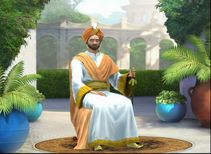


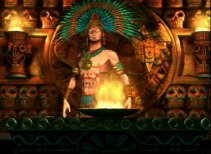
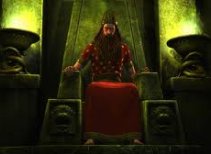






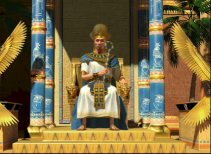






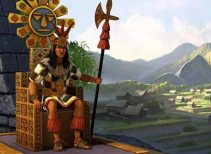

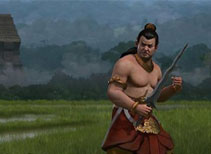

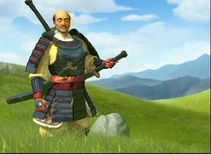

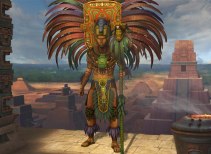
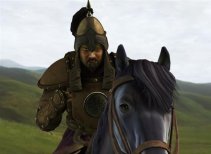
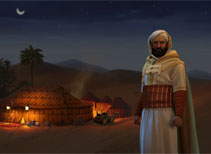

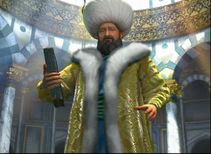
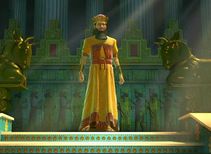
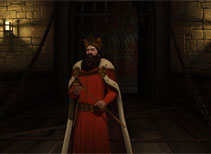
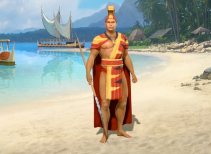
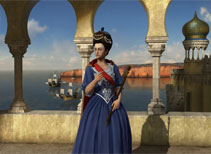



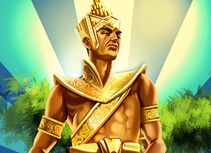
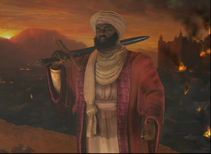


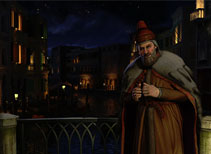
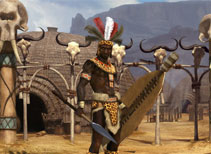
Sorry to see the Polynesian, Spanish and Incan leaders missing but otherwise delighted as nothing else I was able to find including the Civ V wika came even close to this!
Much obliged Evil!
@Swaith – you’re very welcome. You make a good point on the Polynesian, Spanish and Incan leaders. I don’t actually own the DLC as I haven’t worn out the main game yet (not by a long shot!). Will strive to add them in at some point, though I’d welcome someone reminding me if I still haven’t done so in a couple of months.
Glad I found this site… decent leader guides are hard to find. Oh to be sure you can find the basic info about the leaders out there… but there are very few that provide benefits of each style. I do want to add, a few things that I have noticed myself. Archer classed units, while excellent in the early stages of the game are great, all the promotions earned at the later stages are relatively useless unless you can get your units to rank 3 or higher. Even then the first two ranks offer no appreciable bonus to the unit at the later stages. Also, never underestimate the earlier units as unique benefits carry through on promotions. So a special ability that is given in the early stages can be useful at the later stages as well, a good example is the movement benefits of the American units as well as the Iroquois. I too would like to see you view on the DLC leaders. Surrently I have all of them except for the Danish leader that was released today.
I’ve noticed that units maintain their initial abilities/bonuses even after being upgraded. This can give some early units real advantages throughout the game if you are able to hold on to them and upgrade them. For example the Janissary’s and Jaguar’s have nice healing after battle bonuses. Again, you will have to buy the units before they are replaced by newer units of the same type, then hold on to them to continue to recieve their original bonuses.
Thanks for the writeup…. was searching for a page just like this one. One of the things that I would have liked to see in the game was a description of the bonus units when you moused over them during the setup screen.
Peace
@Civ – That functionality is exactly why some of the special units are so great, and it’s an often overlooked advantage by novice players.
I purchased all DLC during the Steam Summer sale (well worth it) and have brought this guide up-to-date. It now includes all civilizations – please do let me know if you spot any errors.
Added:
Denmark
Inca
Polynesia
Spain
Hey! Great review but I’d like to know about Korea. Can you post up another summary on them too?
@Seung – that is certainly something that needs adding. Thank you for reminding me, I’ll have to fire the game up once again and see about adding a bit about Korea :) I’ve beaten the game at all difficulties now, but I am still hunting plenty of achievements ;) (The game has so many…)
Great summary – the three of us just started playing and we regularly return here to get an idea of what’s what.
@ChrisF – That’s awesome to hear. I haven’t had much time to play Civ V myself lately but it remains one of my favourited games in my extensive Steam library. One day I hope to acquire most of the achievements :)
Very interesting reading. I’d like to add a few comments from some games I’ve played recently.
Babylon: It is worth mentioning that both Wall of Babylon and Bowman are great if you’re playing at a high level and you start in a location beside an aggressive nation with strong early units (like the Greeks). For me this made the difference in successfully fending off Alexander’s Hoplites who very nearly captured one of my key cities. I don’t think any other civ would provide such a strong defence against a swarm of Greek Hoplites.
Mongolia: In a recent game as Mongolia I found them to be an excellent civ. Their boost against city states comes in handy particularly in the early game if you find a nice city state or two in good locations and want to take them over to expand your empire, or an early aggressor with a nearby allied city state attacks you. The keshiks, as well as being lethal in mid-game due to their speedy attack and retreat tactics, can also act as great scouts to rapidly reveal the map on another continent. Enough keshiks can even be very effective against some industrial era units like Infantry due to their speedy ability to retreat after attack, so they’re quite long-lasting. The Khan’s ability to quickly heal adjacent units is awesome and makes the Mongolian army a relentless fighting force throughout the entire game.
Iroquois: I found these guys incredible. The Iroquois will naturally start in forest areas anyway. Trade routes can almost naturally be set up through the forests with little road maintenance, and once you can start building lumber-mills together with longhouses your nation’s productivity will soar above all others, and productivity is so key in the early game, and for science victory. Alliances with maritime city states is a good idea to provide food. You have to manually control your workers of course, to make sure they don’t chop down your precious forests.
This is a great guide, thank you. I still use it when starting a new game so i can look at all the leaders I haven’t done yet.
This is absolutely the best encapsulation of the Civ 5 civilization particulars on the web, at least that I’ve seen. The special abilities and units are explained, rather than just listed, and the comments are invaluable. Thank you!
I’m really glad this remains of use to people :-) I still play Civ V ocassionally myself – in fact I’m in the middle of a multiplayer game right now :)
Will you be adding anything for the new Gods and Kings leaders
This is great. If you want to chek this in game you can just go to the civiliopedian, but stil great. are you going to add the gods and Kings civs soon
Fine guide, thank you. I was just about to ask the same thing as Steve – additions for Gods & KIngs?
Terrific little guide, something I am usually referrring to quite often. Ty
I still regularly check this guide before starting a new Civ5 game – very useful and precise !
Lacks the Gods & Kings civilizations though, but I suppose it’s coming soon =)
If I may suggest, you should add a new category which tells people how they play – for example, for England it might be “Elizabeth gets mad quite easily at the smallest things, so try not to get on her bad side. She is very naval-focused, if you are planning to go to war avoid attacking over the sea, if possible.
I’ve started actively playing Gods & Kings – as soon as I have a decent chunk of spare time I will start adding the new leaders to this.
(It’s a fair bit of work formatting and ensuring all information is accurate.)
I also have to work back through and change some of the original leaders as their bonuses changed slightly in some cases. Please bear with me – it will be here soon.
Apologies for the temporary mess – I’ve started updating the article and it has done some thrilling things with the formatting. Bear with me while I bring the whole guide into 2012 / Gods & Kings expansion :-)
The guide has now been updated fully with all new civilizations and changes that the Gods & Kings brought to Civ V. Please do let me know if you spot any errors, as I really appreciate the feedback. (Hell even just saying you found it useful is already awesome as at least then I know it wasn’t wasted effort).
Added:
Austria
Byzantium
Carthage
Celts
Ethiopia
Huns
Korea (DLC)
Maya
Netherlands
Sweden
All previous Civs updated to reflect changes, and in many cases I’ve revised opinions and strategies accordingly.
Thanks so much for the Gods and Kings additions, I’ve kept checking back to see when you would post them
Really handy guide – thank you
seriously, Mongols are the best… just make sure u get horses and go nuts with the keshiks in mid game.. keep shooting from range and retreating immediately out of range.. ur enemy won’t get anywhere close to u
@Damiano – It’s a great unit for sure, but if you’re massively behind in technology and playing against clever opponents (humans), the advantage would be situational and could potentially be negated entirely.
Thanks a ton for updating it with G&K. I have constantly used this guide as reference in the past when using a new leader and I have shown it many a times to friends when they first started. I wasn’t all too sure about some of the leaders in G&K and I have had no luck with finding a comprehensive breakdown like the ones you do.
Really appreciate it and hope to see more like this for future content and possibly another game.(Xcom perhaps? :D)
@Loz – Thanks for your feedback, really appreciate it. Glad that you’ve found it useful as I’ve sunk quite a bit of time into compiling it :)
Funny you mention Xcom – I’ve been totally hooked the past days!
Yea Firaxis really knows their stuff when it comes to TBS games. They keep you engaged with the game without throwing screen after screen of info and menu after menu of random stuff at you.
And it’s perfect because while they’re similar at the core, Civ5 and Xcom are different enough from each other that they offer 2 unique flavors. I love them both.
Agreed, they’ve done a remarkable job at streamlining the gameplay of both games. I was extremely sceptic as I expected yet another failed attempt at reliving the glory days of XCom, but they’ve done as good a job on that as they did on Civ V. (Despite all the nay-sayers who wont see past Civ IV and simply agree that V is an excellent game by its own merit)
Either way – many good gaming hours to go in both games. Let’s hope Firaxis stay at it and do both a Civ VI and an Xcom 2. (Perhaps a remake of TFTD, or Apocalypse? The latter was excellent but was released in an unfinished state due to publisher pressure. Ergo it was never as great as it could and should have been.)
But we digress :)
I’ve just finished the last touched on the body content of a guide for XCOM – thanks for the suggestion and encouragement Loz.
I still have to add a fair number of images to make the read a bit easier / more pleasant (it’s just over 5,000 words!) but it will appear on the website in the next few days.
Austria’s buying skills of city states is too strong, its almost like a cheat. Once you have a good economy you can purchase all city states. I did this and disgusted with myself and game in a point :(
Sounds good. Looking forward to it. I still need to go back and finish it. Been so busy with Dishonored,BL2, and a few other games I haven’t had time to beat it.
Though for play through 2 I plan on doing classic ironman(anything in your guide for that? :p) with the mod that tweaks a bunch of the settings to be more in tune with the classic rule set. Have you seen it?
@Anduril – Diplomatic Marriage is undoubtedly a rather unique and very strong skill. However, bear in mind that it doesn’t help much for small, tall empires as the additional city states would have a negative impact on any cultural victory you might be trying to pursuit.
On the flip side, the ability is also not great for ICS (infinite city sprawl) as the city states are a little on the big side to support them in a massive empire. That said, clever players will be able to make good use of it, and the ability to acquire strategic resources at will all across the map is quite significant.
I’m kind of torn whether or not the ability is balanced or not. It’s different and that makes it easy to say it’s unbalanced, but I’ve not seen a single game yet where Austria dominates all the way. I’m about to play them myself in a multiplayer game, so I might change my opinion.
@Loz – I know right. So many good games which I haven’t even touched yet. My Steam library is full of games with “0 hours” played.
As for XCOM classic ironman – the guide is entirely written for that mode. It will go live tomorrow, the Upcoming tab on the homepage should reflect that now. I’ve seen the mod in question but I wasn’t sure what effect it has on achievements and my current classic ironman game is looking like I’ll beat it without too many problems once I find the time to continue. I’d quite like the achievement behind my name for some ‘official’ recognition. I’m kind of enjoying it so I am taking it slow and making it last.
On that note, I should continue hunting the last elusive Civ V achievements as well. Some of them are still pretty easy to acquire, they just require a bit of time.
Hey,
Great summary guide to the leaders and civs. Very helpful :)
I’ve recently been playing some civ’s that I never really cared for before thinking them underwhelming and thought I’d add a few tidbits that opened my eyes a bit.
First is Spain. Finding the wonders for the gold is amazing, but what I didn’t realize is that some wonders carry hidden benefits that aren’t listed anywhere and those too get doubled. For instance if you find the Fountain of Youth and settle that in your city, it’s pretty much Obscene. You get the money and bonus +1 happiness for finding it. (Meaning every wonder Isabela sees she gets +2 happy)
That alone is a very great bonus early game. However, for normal people if you settle the fountain of youth you gain a hidden +10 happy bonus to your empire…Isabella gets +20! That with the fact that it gives any unit that stops adjacent to it the free bonus healing improvement means that if you ever play a game with her and find this wonder, it should become your number one priority.
What I’m finding this all means for Spain is that you can do some amazing things by feeding on this free happiness and giving away your single copy early luxuries for a massive gold advantage. More times than not you can get enough gold to buy a second settler before your starting city even has enough population to get it. :) I was blown away with how powerful she actually is.
My other one is the Inca. I’m thinking they may be the most powerful civ I’ve played. The ability to move in hills unfettered is amazing but what is more amazing is the ability to pay zero maintenance costs on hill improvements. You can connect your cities early on with roads and suffer virtually no gold cost.
But what truly sets them apart is that Terrace Farm. In your description here you left off one vital piece of info. The farm gives 1 food, but they also gain 1 food PER Adjacent Mountain. The best you can get are the little cul de sac’s where the hill is surrounded on all sides but one and it becomes a 6 food 2 hammer square (now that they fixed it so that it benefits from civil service, it’s even more amazing).
What this means for the inca is that you have to look at a normal hill square as if it actually has a bonus resource on it like wheat, bananas or fish. Honestly if you find a mountain range and hills line the side of it you are looking at each one being 4 food 2 hammers at a minimum with Civil Service. If the mountain range meanders at all you will start seeing 5 food and it still retains its 2 production bonus. Virtually every Inca city nestled along mountains will be a high food / high production city where all your troops can move freely and all the enemy troops are hampered by terrain.
@James – I recently played a multiplayer game with the Incas and absolutely caned the opposition, I agree that they can be very powerful in the right circumstances. Another lovely aspect is the fact your ‘archer unit’ can pretty much freely attack enemies by slowly retreating backwards into hill squares, as the enemy wont be able to follow at the same speed.
It’s a great Civ for sure, but then again so are pretty much all the other ones if you play them to their strengths. Carthage for example is pretty insane too under the right circumstances :) Or Austria. Or.. well you get the idea ;)
About India, I played them in archipelagos. I had 9 cities and it was ok with happiness, I generated a lot of gold and was first on technologies.
I think the avantage of Gandhi is huge when you have a lot of big cities
India’s advantage is best suited to a smaller empire. The penalty is increased for number of cities and decreased for number of citizens.
What difficulty level were you playing on? Anything below Prince gains substantial happiness bonuses.
That said, if you can grow all your cities to a level where the penalty from an additional city is negated by the reduction from population unhappiness, you could indeed make India work even for bigger empires. You are required to create bigger cities, but that isn’t usually a big problem. Interesting idea – I might try that myself at some point, as it’s using India ‘differently’, which makes it by default something worth doing.
That’s actually the way I play India, massive city sprawl focusing on population and farming every square I can. One really awesome thing about India is the Monarchy pick from Tradition Tree.
With Gandhi’s ability you get 1 unhappy per 2 citizens in growth and Monarchy basically cancels that out. This lets me grow my starting city as fast as I want with no ill effects. Every 2 people is +1 gold and +2 science. I basically farm every single square and value food over other improvement types.
That boost in gold at no happiness cost easily funds a fast expansion, the main obstacle is overcoming the initial, static happy hit. My favorite is to be an honorable Gandhi that carries a big stick :)
Going into the honor tree and getting Military Caste and Professional Army. This has the potential to net you 4 happiness and some culture at almost no gold cost and keeps you focused on a strong defense (which also synergies a bit with the unique India building giving even more incentive to build them).
Thanks to Liberty, each of those garrisons is zero maintenance which once you have markets and banks, 1 gold added to the base multiplies out quite nicely.
You can get some more free happiness if you choose some faith based generators. Getting the Pagoda or one of the various other happy generating faith buildings does amazing things for a multi-city growth strategy. The other side benefit is massive populations yields great science even without building all the science buildings.
Yay Gandhi! :) Love playing as him!
Well things IRL have finally slowed down enough for me to fire up Gods & Kings and I must say… Austria is straight up beast mode. In all MP games I’ve played taking over any Mercantile/Militaristic city state just proves to be the difference. After re-reading over this guide about the Gods & Kings civs I haven’t even touched one outside of Austria (did co-op with a friend who was the Huns, he swept the world by turn 200) but am looking forward to exploring the others. Thanks for keeping this up to date Evil.
My pleasure thenyproject – I’m really pleased that this has been useful to people for such a long time. It makes the initial time investment totally worthwhile.
I’ve had this bookmarked since I think the 2nd day you ever put it up. I know I’ve got at least 5 buddies on Steam who all refer to this with me each time before we play MP so we can decide who is gonna do what. Of everything that Google throws back when searching there really is no guide that is 1) this thorough or 2) kept up to date. Thanks again man.
this guide is kinda bad, so many things dont make any sense at all.
like rome’s unique ability (not units) being better for war or big empires, just no. last time i checked, when you’re making buildings, you’re not making units. how the fuck does a bonus to the production of buildings should entice you to have a warmongering game? also, to fully use the bonus your capital should be big and have almost every building, not be spamming settlers or units. its much more suited to a small empire (tradition) and/or peaceful game.
thats just one example… almost every civ has a “what!?!?” statement in it…
So many things wrong with your comment…The author of this gave you a great response. I will just say that this is by far my favorite guide for concision and information in a comparative forum.
Thanks for the comments, Chris. I’ve scheduled in an update to the guide to bring it in line with Brave New World as it’s long overdue and I’ve played another few hundred hours since. (I’m getting close to having all achievements, I think I miss 40 or so annoying ones now)
@drake – I’m going to have to disagree with your assessment there. Whether or not the guide is good/bad I leave up to other people (though the overwhelmingly positive feedback would suggest the opposite to your opinion) but your comments on Rome are plain incorrect.
In Civ, if you are not but making units you are already doing something wrong. You must strike a balance between building up your infrastructure and building up your army, and several buildings give huge benefits to building units.
What you are forgetting is that decreased building times give your empire more time to build units compared to your opponents. In addition, your bonus is completely lost if you are playing a small, peaceful game – as you will hardly benefit from the increased speed you have in building up new cities.
I therefore state that the bonus is best utilized with an aggressively expanding empire and not with a tiny peaceful one.
If we must be precise than with Rome you might have a smaller focus on building wonders and units in your capital and builds more ‘standard’ buildings after the early game to make the most out of your production bonus. Instead, you’d utilise the 2nd/3rd cities for those, which by then have build up rapidly due to their bonus to any buildings the capital already contains.
That’s not to say that the bonus can not be used in other strategies – but to say that you should play a peaceful game with an empire that is so well suited to expanding and military conquest would be somewhat misleading at best.
@drake – While I disagree with your logic in general, having played very successful large empire games as Rome, I also find it quite amusing that any game developer would design Rome, of all civilizations, to be suited to a small empire and a peaceful game! That defies history even more than Civilization normally does.
Awesome guide..though regarding the Arabs…they are not Arabs they’re Abbasids.the two are not the same.
@Diasam – The Abbasids were Arabs descended from Abbas ibn Abd al-Muttalib.
I loved your analysis and only stop checking it before every game after I discovered one in Steam (which was created after yours :D )
Thank you!
Extremely helpful. Now I will be able to beat my brother!
Good Luck!
Whoever came up with the list of civilizations and leaders clearly didn’t know a whole lot about history. I feel like they sacrificed historical accuracy to have more women as leaders (China had at least five truly great emperors, and I don’t think Theodora was ever even the leader of the Byzantine Empire), and in some cases they seem to be partial to founders of empires rather than the leaders who presided over their golden ages (Pachacuti vs Huayna Copac, Nobunaga vs Tokugawa). Also, the civilization list is not very well done. The Vietnamese, for example, have accomplished more than the Danes, Swedes, Polynesians, Iroquois, and Celts combined (most of them weren’t even civilized), and yet they’re all included. It’s a good game, but it seems like historical research should have been the easiest part of developing the game
Leonid,
At the risk of being snarky about it, I’d have to say if you want more accuracy then you’d be better off with a textbook. Civ 5 has some great factoids in it that dare to even remotely educate a gamer. Most gamers are not looking for an education when they play and by and large if it wasn’t for Civ even having them in it, I daresay many players hadn’t even heard of some of these rulers before no matter how much they may have contributed or detracted from this world.
Historical Accuracy has no place in Civ, While reliving the death of a dynasty or empire may be interesting, doing it over and over again for the sake of historical accuracy isn’t much of a game as it is something that should be on on the History channel. You can’t very well champion historical accuracy and let the Aztec’s conquer the world now can you?
As for Theodora, you may want to crack that history book again and take a closer look at that. If you want some cliff notes with a grain of salt, Wikipedia to the rescue.
Leonid
“The Vietnamese, for example, have accomplished more than the Danes, Swedes, Polynesians, Iroquois, and Celts combined (most of them weren’t even civilized), and yet they’re all included.”
Thats just a load of bullcrap. How do you count accompishments? And you should know that Civ V takes civilizations from many different eras. To argue with the point that they were not civilized is just wierd.
I think this list is great. I have tried a couple of civs and used this as a bit of a guide. i am very thankful that someone took the time to do this. it has really helped me enjoy the game even more, although that was hard to believe.
Yo Evil Tac!
Will you be updating this list with the new Brave and Bold info? I’m hoping so, I use your stuff all the time as a concise source of info on abilities and such. :)
bnw update please! :}
This is a great list. Perfect for when you want to play multiplay, but for the life of you can’t remember any of the bonuses for a Civ.
”The Vietnamese, for example, have accomplished more than the Danes, Swedes”
Your kidding right?
Do you know anything about History. http://en.wikipedia.org/wiki/Swedish_Empire
Sweden was one of the major powers in Europe for hundreds of years controlling most of scandanavia and the balticts. They even had Russia on there knees many times and probably would have conquerd them if it was not for the Russian winter like many nations have fallen prey to.
Denmark has a rich history of colonisation Iceland,greenland, Jorvik now known as Yorkshire in England and dont forget it was Danish vikings that founded Rus now known as russia. They have also been involved in many conflicts throughout the dark ages all the way up to modern times.
I think its you that needs to look up his history not the Civ developers.
Am I the only one that got Ethiopia from BNW?
Hey man,
Awesome list, I’ve used it a lot, just wondering if there is any chance you could make an updated one to include the new civs from the second expansion. Would be greatly appreciated!
I’ve bought the expansion now and will play it shortly. I hope to update the list in the near future.
This is a grate guide that i really appreciate, however it has become a bit obsolete since Gods and Kings hit the market. Any plans on an uppdate?
Hi Tobias,
We’re planning to update this guide in the next 2 months. Apologies for the delay in this – we’ve been very busy redesigning the website for a massive relaunch and this guide kind of fell to the side as a result.
New look and design is great by the way.
Thank you, much appreciate the comments :)
Opps, i of course ment A brave new word, not gods and kings.
Ive got over 1000 hours of civ 5 under my belt lol Love playing it and learning cant wait for them to include every civilization ever, maybe some options on choosing different leaders from each of the civilizations. I like how the game is progressing and I am impressed with Evil Tactician’s Article good job I will save this in my notes when friends are over when playing Multiplayer to give them idea of the Civs they choose.
were is Shoshone???
Soon!
I think japanese id the best civ to go for as bushido allows them to still attack at full damage as well as their uu the samurai and the zero fighter are awesome mid – late game
japanese r the best
i once played a game where i could expand on three continents (earth) with all enemies (seven) only on asia and europe. i played as england too on immortal difficulty with raging barbarians.
Sounds like an interesting game. I’m a big fan of Earth maps but I always seem to get stuck in North or South America by myself, isolated from the rest of the world until mid or late game. Whilst nice for building up, it does make for a far less intriguing game politically.
I’m currently updating this guide to include all Brave New World Civilizations. I will update this comment as I progress.
Done: Poland.
An update from the master! Dear lord, we’re going to have an absolute gem in our hands once this is finished.
Japan and Germany got changed in the latest patch. Landsknecht are now a social policy and Germany instead gets a building which increases production with each trade route to a city state, and Japan can use Samurai to build fishing boats, and get a bit of culture from fish and atolls.
Eek, how did I miss that? I’ll update that when I get home tonight, I’m currently on the move. Thanks, Richard for pointing that out!
Venice is by far my favourite civ. If you’re lucky enough to spawn on the coast and near other city-states, you have the potential to make a metric shit-ton of gold (that’s a technical term). Money doesn’t buy happiness? I beg to differ. When you own all the luxury resources and bleed culture into everyone in your hemisphere, you’ll find yourself quite a happy person.
Venice is awesome fun to play – the only thing that can be frustrating is when you find your sea trade routes constantly plundered and erased by the endless wars of other civilizations. Against humans I can imagine Venice being quite difficult to play as they can isolate and embargo you and essentially get rid of any advantage you may have over them.
I love that Firaxis are adding these more ‘unique’ Civs to the game, though.
Still refer to this guide every time we play, although I just flicked through the guide again now it’s updated and being the still noob player I am have a question! After reading the Huns sections you mention puppet all the cities. What is the advantages of puppet’ing a city instead of occupying? As I understand the only difference is a puppet city wont hinder the ability to build Wonders based on certain building types. And the city AI controls what is built. From what I can see the courthouse removes the 25% negative for both so I am better having full control of my cities no?
Puppets don’t count towards the increased Social Policy cost per City – and they also generate a lot less unhappiness than Annexing a city does. Always puppet first and Annex later unless you have a very good reason to take the city then and there.
There are further financial advantages; puppets are set to Gold Focus and you can use workers to replace all tiles with trade posts to further reap the benefit from them.
Mass annexing ultimately becomes unsustainable, especially on higher difficulties. Choose your Annexation carefully – at the right time and for the right cities.
Updated Germany (thanks to Cowstep on Reddit and Richard in the comment section here).
Hey Evil Tactician,
I have a some questions for you if I may ask :D ,
what is your favorite Civilization?
And do you play a lot of Civ 5? -> yes: do you have a youtube channel? -> yes: what’s the channel’s name? Because I love playing and watching Civ 5!
-Greetings Lend
Ps: This guide is just awesome and very helpful! i just readed it all and wow man, A loooot of words here! Sounds like a lot of work, I mean Great work ;D
Hey Lendvdb,
Asking is always free :-)
Favourite Civ: Tricky one, I quite enjoy many Civilizations. But the Dutch (Netherlands) are among one of my favourites, mainly because I am originally Dutch. (Though I live and work in the UK)
I also quite enjoy Venice, for it’s unique play style. Honestly, though – these days I play almost any Civ and have even started to simply use ‘random’ in new games.
Do I play a lot? – Yes. I have 426 hours on record on Steam – not counting offline mode as Civ is great to play on a laptop when you’re on holiday or visiting people / family.
Our YouTube channel is linked at the top of the page – there’s an icon in the header. I can also be found on Twitch, though I don’t Stream much these days and I don’t think I’ve ever streamed Civ V. We almost solely play in multiplayer and Streaming wouldn’t be too smart then. ;-)
Thank you for your comments!
Which civilization is th best for poducing a lot of gold?
Hey Jonathan!
There are a number of options for making a lot of gold – most of the civilizations are capable of this but some of them can really rack in huge quantities.
I’ll list a few below:
Venice – If you spawn in a good central location with plenty of access to water and keep your trade routes well patrolled with your navy, they can make an ABSURD amount of money. Some games can be frustrating though, as trade routes are easily broken and Venice definitely works best in peaceful times.
Portugal – Their special ship and ability to gain more luxuries can be used to your advantage.
Arabia – Also capable of making a lot of gold, if their spawn position is favorable. Extra copies of luxuries is great.
Spain – If you’re able to find those natural wonders before anyone else. Personally, I prefer the civilizations with more long-term bonuses.
Persia – Use those Satrap’s Courts and your extended Golden Ages and focus heavily on extended and triggering those more often. You’ll make a killing if you do.
China – The fact that Libraries give money and not take it, means you can spam those and markets across a large empire and acquire a huge amount of gold with just research and income building chains.
I was making 500 gold a turn as venice once, late game golden age.
Love this guide, thanks, and thanks for the update! Me and my friends allways use it (and share it) when we play.
Bye!
Boris
Thanks for the feedback, Boris! It’s great to hear you are finding the guide useful :-)
I found the Shoshone to be one of the best civilizations to play as. You get a great early game bonus in faith and culture due to Pathfinders, and if you get the weapons upgrade in the ancient ruins, you get Composite Bowmen very early in the game. Also, the increased territory gives a massive advantage through out the game, meaning you can block other yers form settling near you and near resources that you need, as well as taking resources from other players. Yes, the Comanche Riders are not the best unique unit, but they work well for hit and run style attacks. They are a strong trading civilization and probably one of the most versatile.
I think you were too harsh on the Shoshone. Their ability to automatically have all major resource tiles when the city is established allows for some some very aggressive expansion when coupled with the Liberty tree, grabbing many resources before other nations have a chance to grab them, leaving you with a monopoly. Since the boarders grow instantly, you can have your workers immediately harvest all the luxury resources you can find, allowing for even more expansion. I can easily have 4 cities out by the time my opponents are getting their second, without concern for happiness.
Once you have secured the resources, you are in a prime position for trade to increase your economy, adding diplomatic bonuses as well.
With the great expanse defensive bonus, protecting your vast empire is relatively easy, so long as you stay ahead in technology, and should all else fail, its amazing how fast 10+ cities can crank out a defensive army, even leaving some for continued growth.
The only thing the Shosone couldn’t really win at is conquest, I would say they are well suited for the others.
Honestly, Venice kicks balls! U can use some of your trade routes to send food and production to your capital which makes it a 50+ Monster at some point. If you focus on research you can practically build all world wonders. You can purchase all other buildings with gold or build them in times when no wonders are available. I have some +500-600 gold in the early 1900s and try to keep peace and good relations with other nations and try to win either by culture, science or diplomacy all going pretty well so far.
Lol Chinese foundation symbolic character is Huang Di and not wu zhe tian…this turned me off a lol on playing chinese
This is great! Made me deciding who to play as much easier for a complete newbie to Civ like me!
Chose The Shoshone – being conservative, they fit my play style quite well. The bonus to their damage while inside your own territory was very helpful.
Like if you’re posting on 2015.
RUSSIAN AUTOCRACY FOR THE WIN!!! Get third alternative and you have triple resources! Triple the nukes, triple giant death robots, triple the power. Germany can have it’s war power and the u.s can have it’s tiles, but when two uranium can blow up three cities, COME AT ME BRO!
Approve.
You’ve just given me the info I was searching for. I recently had to fill out a form and spent an enormous amount of time trying to find an appropriate I’ve found some decent tutorials on how to fill CA CIV-100 out online here
http://goo.gl/kGyaBeShoshone are my favourite guys. I’m a territory guy and the combat bonus within my own territory also allows me to use generals to expand into territories with the citadel before attacking and destroying them. Plus I love starting with additional territory, especially if rare resources are nearby.
This can lead to better trading opportunities and a solid rise in cash in the early to mid game which gives you a better chance in later ages.
The pathfinders allowing you to choose what ancient ruin bonus to have as well, allows you to boost your game early on.
I tend to follow the autocracy game with them and choose a religion that boosts food production in peace time in order to take more advantage of the initial territory spread.
Also, happiness from walls and castles etc counters the unhappiness from large pop and protects against jealous civs attacking for resources :-)
Happiness from all the resources as well, means a more stable civ :-)
Re: Zulus. I have Holy Warriors and you can’t continue to buy Impi with faith after discovering rifling. If the Augustus13 tip was ever true, it has since been nullified.
It’s 2021 and I still refer to this guide.
I’m glad it’s still useful!